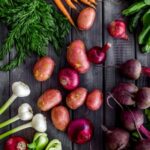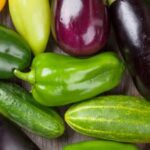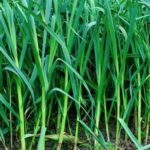South Carolina vegetable gardening has a rich tradition deeply rooted in the state’s history and culture. The fertile soil and favorable climate of South Carolina make it an ideal location for growing a wide variety of vegetables.
Whether you are a seasoned gardener or just starting out, exploring vegetable gardening in South Carolina offers a rewarding experience filled with beauty and bounty. From heirloom varieties to modern hybrids, there is something for every gardener to enjoy in this lush Southern state.
With its diverse landscape and mild winters, South Carolina provides gardeners with a long growing season that allows for multiple harvests throughout the year. Understanding the unique climate and soil conditions of the state is key to successful vegetable gardening. By selecting the right plant varieties and implementing proper care practices, you can ensure a productive and thriving garden that reflects the agricultural heritage of South Carolina.
In this section, we will delve into the essential aspects of South Carolina vegetable gardening, from climate and soil conditions to best vegetable varieties to grow in this region. By following our tips and tricks for planning your garden, embracing organic gardening practices, and learning how to deal with common pests and diseases, you can cultivate a flourishing vegetable garden that not only sustains your family but also connects you to the vibrant community of fellow gardeners in South Carolina.
Climate and Soil Conditions in South Carolina for Successful Vegetable Gardening
South Carolina’s climate and soil conditions play a crucial role in the success of vegetable gardening in the state. With its warm, humid summers and mild winters, South Carolina offers a long growing season that is conducive to a wide variety of vegetables. Additionally, the state’s diverse geography provides different microclimates that allow for the cultivation of various crops. Understanding the specific climate and soil conditions in your particular area is essential for a successful vegetable garden.
When it comes to soil, South Carolina is known for its rich, fertile land that is perfect for growing vegetables. The state has a range of soil types, from sandy loam along the coast to clay soils in the Piedmont region.
Testing your soil to determine its pH levels, nutrient content, and texture can help you choose the right vegetables to grow and provide appropriate amendments if needed. Additionally, incorporating organic matter such as compost or aged manure can improve soil structure and fertility for healthier plant growth.
To make the most of South Carolina’s climate and soil conditions for vegetable gardening, consider planting varieties that are well-suited to thrive in the state’s environment. Some popular vegetable options that do well in South Carolina include tomatoes, peppers, squash, cucumbers, okra, sweet potatoes, and collard greens.
These vegetables not only tolerate the heat and humidity but also benefit from the fertile soil found throughout the state. By selecting varieties that are recommended for South Carolina’s growing conditions, you can increase your chances of a bountiful harvest in your vegetable garden.
- Conduct a soil test to determine pH levels and nutrient deficiencies
- Choose vegetable varieties that are compatible with South Carolina’s climate
- Incorporate organic matter such as compost into your soil for improved fertility
Best Vegetable Varieties to Grow in South Carolina’s Unique Climate
When it comes to South Carolina vegetable gardening, choosing the right vegetable varieties is essential for a successful harvest. The unique climate of South Carolina, with its hot and humid summers, can make it challenging to grow certain vegetables. However, there are many vegetable varieties that thrive in this environment, providing bountiful yields for gardeners. Here are some of the best vegetable varieties to consider growing in your South Carolina garden:
- Tomatoes: Varieties like ‘Better Boy’ and ‘Cherokee Purple’ are well-suited for South Carolina’s warm climate and produce tasty fruits throughout the summer months.
- Okra: This heat-loving vegetable thrives in South Carolina’s hot temperatures and produces a long harvest season, perfect for adding to soups or frying up for a crispy snack.
- Squash: Varieties like zucchini and yellow squash do well in South Carolina’s fertile soil and warm weather, providing an abundance of delicious vegetables for your table.
In addition to these popular choices, other vegetable varieties that are well-suited for South Carolina’s unique climate include bell peppers, cucumbers, eggplant, and beans. By selecting the right vegetable varieties for your garden, you can ensure a successful growing season and enjoy a variety of fresh produce throughout the year.
With proper care and attention to watering and fertilizing needs, these vegetable varieties can thrive in South Carolina’s conditions. Consider creating raised beds or using mulch to help regulate soil temperature and moisture levels. By choosing the best vegetable varieties for your South Carolina garden, you can maximize your harvest and enjoy the rewards of your hard work throughout the growing season.
Planning Your South Carolina Vegetable Garden
South Carolina offers a unique opportunity for vegetable gardening enthusiasts to thrive due to its favorable climate and soil conditions. Planning your South Carolina vegetable garden requires careful consideration of various factors to ensure a successful harvest. Here are some tips and tricks for cultivating a flourishing vegetable garden in the Palmetto State.
Understanding Your Soil and Climate
Before you start planting, it’s crucial to assess the specific soil conditions and climate of your location in South Carolina. The state’s climate varies from coastal areas to the mountains, impacting what can be grown successfully. Conduct a soil test to determine pH levels and nutrient deficiencies that may affect plant growth. Understanding your soil composition will help you choose the right vegetables that are suited to your specific location.
Selecting the Right Vegetables
Choosing the best vegetable varieties for your South Carolina garden is key to maximizing your harvest. Opt for heat-tolerant crops like tomatoes, peppers, okra, and sweet potatoes, which thrive in the warm summers of South Carolina. Leafy greens such as collard greens, kale, and lettuce also do well in the state’s mild winters. Consider planting a mix of cool and warm-season vegetables to enjoy fresh produce throughout the year.
Companion Planting and Rotating Crops
Implementing companion planting techniques can help maximize space in your South Carolina vegetable garden while deterring pests naturally. Pair plants that benefit each other when planted together, such as basil with tomatoes or marigolds with cucumbers. Additionally, practice crop rotation by changing up where you plant certain vegetables each season to prevent soil depletion and reduce pest infestations. By incorporating these strategies into your garden planning, you can increase productivity and promote overall plant health.
Importance of Organic Gardening Practices in South Carolina
The Benefits of Organic Gardening in South Carolina
Organic gardening practices are essential for ensuring the health and sustainability of your vegetable garden in South Carolina. By avoiding synthetic fertilizers, pesticides, and herbicides, you can protect the local ecosystem, minimize harm to beneficial insects, and safeguard the health of your family and community.
In addition, organic gardening promotes soil health and fertility, leading to more robust plant growth and higher yields over time. South Carolina vegetable gardening enthusiasts are increasingly recognizing the importance of embracing organic methods to cultivate a thriving garden that is both productive and environmentally friendly.
Implementing Organic Practices in Your South Carolina Vegetable Garden
To incorporate organic gardening practices into your vegetable garden in South Carolina, start by enriching your soil with compost, manure, or other natural amendments to boost nutrient levels and improve soil structure. Avoid chemical pesticides by using integrated pest management techniques such as companion planting, crop rotation, and introducing beneficial insects like ladybugs and lacewings.
Mulching with organic materials like straw or leaves can help suppress weeds, retain moisture, and regulate soil temperature. By practicing regular soil testing and maintaining proper plant spacing, you can prevent nutrient deficiencies and overcrowding issues while promoting overall plant health naturally.
Finding Organic Resources and Support in South Carolina
South Carolina vegetable gardeners interested in adopting organic practices can benefit from a variety of resources and support available throughout the state. Local farmers markets often feature organic produce grown by nearby farmers who follow sustainable growing methods. Joining a community garden or participating in a local gardening club can provide opportunities to learn from experienced organic gardeners, share tips and tricks, and collaborate on projects.
Additionally, attending workshops, seminars, or conferences focused on organic gardening can expand your knowledge base and connect you with like-minded individuals passionate about cultivating healthy food in harmony with nature. By tapping into these resources and embracing organic gardening practices in South Carolina’s unique climate, you can nurture a vibrant vegetable garden that thrives while contributing to a greener future for generations to come.
Dealing With Common Pests and Diseases in South Carolina Vegetable Gardens
South Carolina vegetable gardening enthusiasts often face a variety of pests and diseases that can threaten the success of their crops. One common pest in South Carolina gardens is the squash vine borer, which can wreak havoc on squash, pumpkins, and zucchini plants. To prevent these pests from decimating your plants, consider using row covers to protect them or handpicking any eggs you find on the undersides of leaves.
Another prevalent issue for South Carolina vegetable gardeners is powdery mildew, a fungal disease that affects a wide range of crops such as cucumbers, squash, and melons. To combat this disease, make sure to plant resistant varieties when possible and space your plants properly to ensure good air circulation. Additionally, applying fungicides early in the season can help prevent powdery mildew from taking hold.
When it comes to managing pests in South Carolina vegetable gardens, practicing good integrated pest management techniques is key. This approach involves using a combination of cultural, physical, and biological control methods to minimize the need for chemical pesticides. For example, attracting beneficial insects like ladybugs and lacewings to your garden can help naturally control aphids and other harmful pests.
| Common Pests/Diseases | Prevention/Treatment |
|---|---|
| Squash vine borer | Use row covers or handpick eggs |
| Powdery mildew | Plant resistant varieties and apply fungicides early |
| Aphids | Attract beneficial insects like ladybugs and lacewings |
Harvesting and Preserving Your South Carolina Vegetable Garden Produce
When it comes to harvesting your hard-earned produce from your South Carolina vegetable garden, timing is key. Many vegetables in South Carolina reach their peak flavor and nutrition when harvested at the right time. For example, tomatoes should be picked when they are firm and fully colored.
Beans are best harvested when they are still tender and before the seeds inside start to swell. Be sure to check the specific harvesting times for each vegetable you are growing in your South Carolina garden to ensure maximum taste and freshness.
After successfully harvesting your vegetables, it’s important to preserve them properly to enjoy them beyond the growing season. One popular method of preservation is canning, which allows you to store your vegetables for long periods without losing their flavor or nutritional value. Freezing is another great option for preserving vegetables from your South Carolina garden.
Blanching vegetables before freezing helps maintain their color, texture, and taste. Additionally, pickling is a delicious way to preserve your harvest while adding unique flavors to your veggies.
It’s also essential to properly store your harvested vegetables from your South Carolina garden. For example, root vegetables like carrots and potatoes can be stored in a cool, dark place with good ventilation to prevent spoilage. Leafy greens such as lettuce and spinach should be stored in airtight containers in the refrigerator to maintain freshness. By following these harvesting and preserving techniques, you can enjoy the bounty of your South Carolina vegetable garden well into the colder months.
| Vegetable Preservation Method | Benefits |
|---|---|
| Canning | Long shelf life without loss of flavor/nutritional value |
| Freezing | Maintains color, texture, and taste with blanching |
| Pickling | Adds unique flavors while preserving harvest |
Community Resources and Events for Vegetable Gardeners in South Carolina
One of the greatest benefits of engaging in South Carolina vegetable gardening is the strong sense of community that exists among fellow gardeners in the state. There are numerous resources and events available to support and connect individuals who share a passion for growing their own produce. Community gardens, farmers markets, and gardening clubs provide opportunities for both novice and experienced gardeners to learn, share ideas, and collaborate on projects.
Community gardens play a vital role in promoting sustainable agriculture practices and fostering a sense of camaraderie among individuals interested in vegetable gardening. These shared spaces bring together people from diverse backgrounds with a common goal of cultivating fresh, healthy produce. Participants can exchange tips, advice, and seeds while contributing to the overall well-being of their communities. Additionally, community gardens often host workshops, classes, and events that further enhance the knowledge and skills of participants.
Farmers markets are another invaluable resource for South Carolina vegetable gardeners looking to connect with local producers and fellow enthusiasts. These lively marketplaces not only offer a wide variety of fresh fruits and vegetables but also serve as gathering places where like-minded individuals can come together to celebrate their love for homegrown produce.
Shopping at farmers markets supports local farmers and promotes sustainable agricultural practices while providing consumers with access to high-quality, seasonal ingredients. Additionally, many farmers markets host educational events such as cooking demonstrations or gardening workshops to inspire visitors to get more involved in growing their own food.
Gardening clubs and associations provide yet another avenue for South Carolina vegetable gardeners to connect with others who share their love for cultivating plants. These organizations typically offer opportunities for members to participate in group activities such as garden tours, seed swaps, or plant sales.
By joining a gardening club or association, individuals can expand their knowledge base, network with experienced growers, and gain access to valuable resources that can help them succeed in their own vegetable gardens. The sense of belonging that comes from being part of a supportive community of fellow gardeners can be incredibly rewarding for those who choose to immerse themselves in the vibrant world of South Carolina vegetable gardening.
Conclusion
In conclusion, South Carolina vegetable gardening offers a rich tradition that celebrates the beauty and bounty of the region. With its unique climate and soil conditions, gardeners in South Carolina have the opportunity to grow a wide variety of vegetables that thrive in this environment. By embracing organic gardening practices and utilizing helpful tips for planning and care, individuals can successfully cultivate their own bountiful harvests.
Despite challenges such as pests and diseases, South Carolina vegetable gardeners can overcome these obstacles with proper knowledge and management techniques. By staying informed about common issues and implementing preventative measures, gardeners can protect their crops and ensure a plentiful yield. Additionally, harvesting and preserving produce from the garden allows individuals to enjoy the fruits of their labor throughout the year.
Furthermore, community resources and events play a significant role in supporting and connecting vegetable gardeners in South Carolina. From local farmers’ markets to gardening clubs and workshops, there are ample opportunities for enthusiasts to learn, share experiences, and foster a sense of community around their love for vegetable gardening. As more individuals embrace the beauty and bounty of South Carolina vegetable gardening, this tradition will continue to flourish for generations to come.
Frequently Asked Questions
What Vegetables Can I Grow in South Carolina?
South Carolina’s climate allows for a variety of vegetables to be grown successfully. Some common choices include tomatoes, peppers, cucumbers, squash, okra, sweet potatoes, and various types of beans. These vegetables thrive in the warm and humid conditions of South Carolina.
When Should I Start My Garden in South Carolina?
The best time to start a garden in South Carolina is typically in the early spring, around March or April. This timing allows for the soil to warm up sufficiently and reduces the risk of frost damaging young plants. Starting around this time gives your garden a head start before the summer heat arrives.
How Often Should I Water My Vegetable Garden in South Carolina?
In South Carolina’s hot and humid climate, watering your vegetable garden regularly is essential to keep the plants healthy and thriving. Generally, it is recommended to water deeply but infrequently to encourage deep root growth.
Depending on factors like temperature and rainfall, you may need to water your garden 2-3 times per week during dry spells. It’s crucial to monitor the soil moisture levels and adjust your watering schedule accordingly to ensure optimal growth for your vegetables.

If you’re looking to get into vegetable gardening, or are just looking for some tips on how to make your current garden better, then you’ve come to the right place! My name is Ethel and I have been gardening for years. In this blog, I’m going to share with you some of my best tips on how to create a successful vegetable garden.





